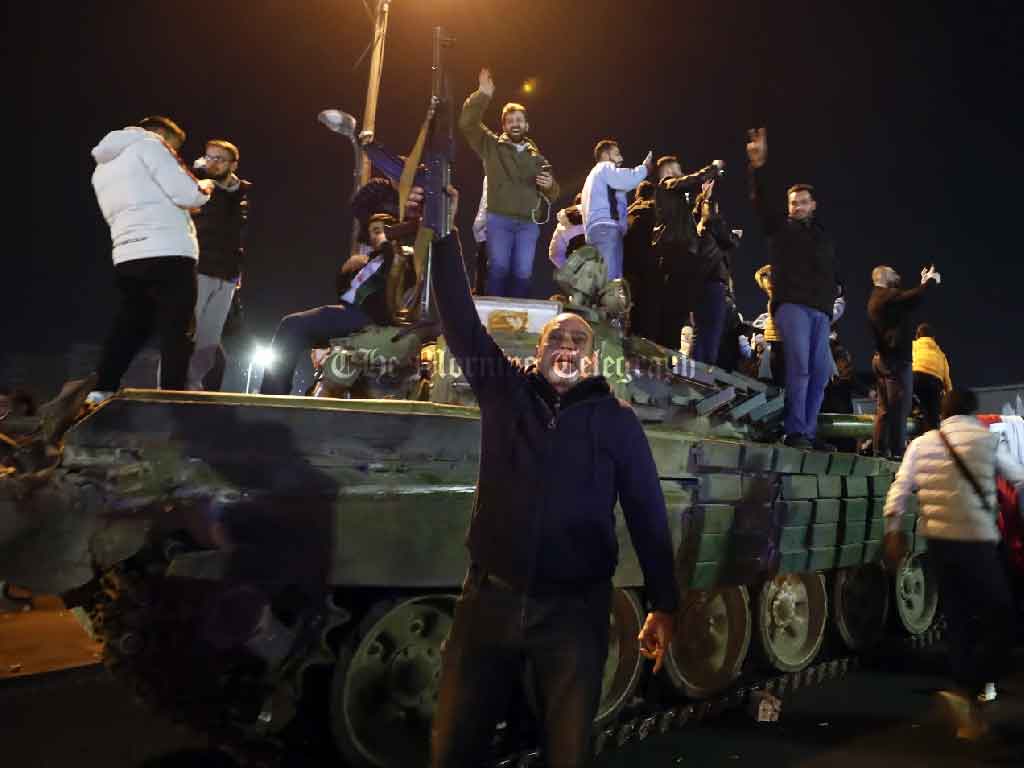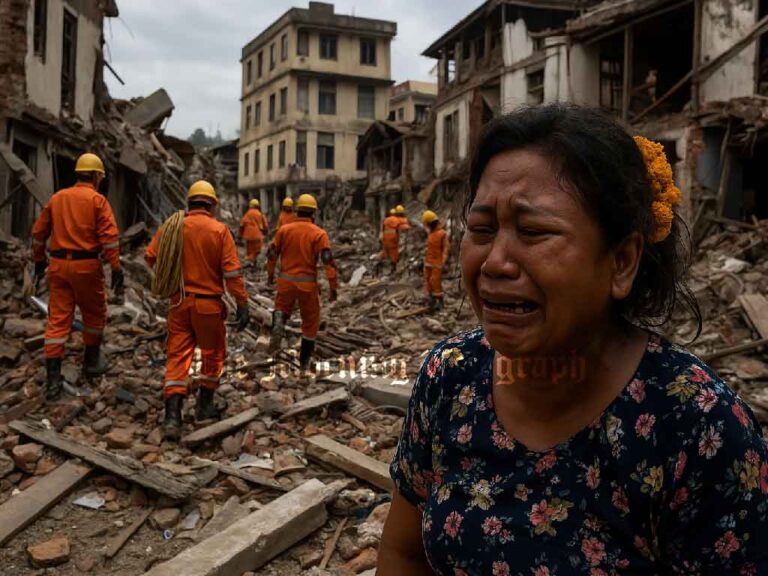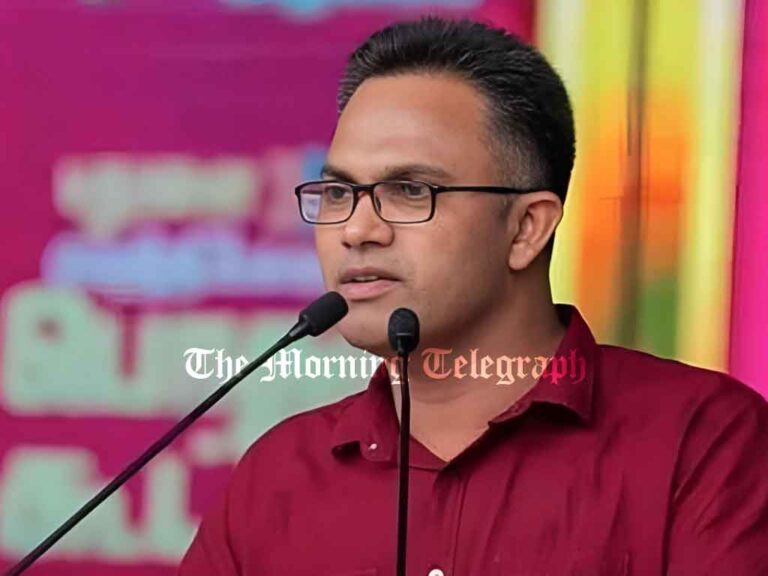
The Syrian government collapsed early Sunday, bringing an end to five decades of Assad family rule. A rapid 10-day offensive by rebel forces swept across the country, capturing key government-held territories and culminating in their entry into Damascus. This shocking development signals a turning point in Syria’s complex and protracted civil conflict.
Syrian state television aired a statement from the “Operations Room to Conquer Damascus,” an opposition coalition, declaring that President Bashar Assad had been overthrown and that all detainees in government prisons had been released. The spokesperson called on citizens and opposition fighters to protect state institutions in what they referred to as the “free Syrian state.”
Assad Flees Amid Rebel Advance
Reports from opposition monitors and regional media suggest that Assad fled Damascus late Saturday. The Syrian Observatory for Human Rights confirmed his departure to an undisclosed location, while Iranian state television reported the same, citing Qatar’s Al Jazeera network. However, state media in Syria denied these claims, maintaining that Assad was still performing his duties in the capital.
Prime Minister Mohammed Ghazi Jalali, in a video statement, expressed readiness to transition government functions to a new leadership. He stated, “I am in my house and have not fled because of my commitment to this country,” while calling for citizens to refrain from damaging public property. Notably, he admitted that he had lost contact with Assad and the defense minister, casting doubt on their whereabouts.
Celebrations and Chaos in Damascus
As news of Assad’s fall spread, Damascus saw a mix of jubilation and disorder. Crowds gathered in mosques and public squares, chanting anti-Assad slogans and honking car horns. Some fired celebratory gunshots into the air. However, the city also witnessed chaos as soldiers abandoned checkpoints, police headquarters were left empty, and looters ransacked the Ministry of Defense.
An Associated Press journalist captured footage of discarded uniforms and abandoned military posts under posters of Assad’s image. Opposition media broadcast scenes of a tank positioned in a central square of the capital, underscoring the collapse of government control.
Rebel Offensive Sweeps Across Syria
The opposition’s stunning advance began on November 27, spearheaded by Hayat Tahrir al-Sham (HTS), a group with roots in al-Qaida that has sought to rebrand itself as a more moderate faction. Within days, the rebels captured key cities, including Aleppo, Hama, and Homs. The seizure of Homs, a strategic hub connecting Damascus to Assad’s coastal strongholds, was seen as a critical turning point.
The Syrian army’s retreat from southern regions further enabled the opposition’s rapid progress. Notably, HTS forces entered Saydnaya military prison, north of Damascus, liberating scores of detainees. The pro-government Sham FM radio station reported that Damascus International Airport had been evacuated, with all flights suspended.
International Reactions
The international community responded with a mix of urgency and caution. The United Nations’ special envoy for Syria, Geir Pedersen, called for immediate talks in Geneva to facilitate an orderly political transition. The talks aim to implement the U.N.’s 2015 resolution, which outlines steps for a transitional governing body, a new constitution, and U.N.-supervised elections.
Foreign ministers from countries including Saudi Arabia, Russia, Turkey, and Iran convened on the sidelines of the Doha Forum, issuing a statement in support of a political solution to end military activities and protect civilians. Russian Foreign Minister Sergey Lavrov expressed sorrow for the Syrian people, while Iran, a key Assad ally, remained largely silent beyond acknowledging the situation.
Uncertain Future
The collapse of the Assad government leaves Syria in a precarious position. The rebels’ control of the capital marks their first entry into Damascus since 2018. However, concerns linger about their ability to govern effectively, especially given HTS’s controversial past and its designation as a terrorist organization by the United States and the United Nations.
Domestically, panic spread among civilians, with thousands attempting to flee across the border into Lebanon. The Masnaa border crossing was closed late Saturday, leaving many stranded. Food shortages became evident in Damascus, as shops ran out of staples, and prices skyrocketed.
As regional powers and the international community weigh their responses, Syria faces the daunting task of rebuilding governance and infrastructure after years of conflict. The next steps will be critical in determining whether the country can achieve a peaceful transition or slide further into instability.




